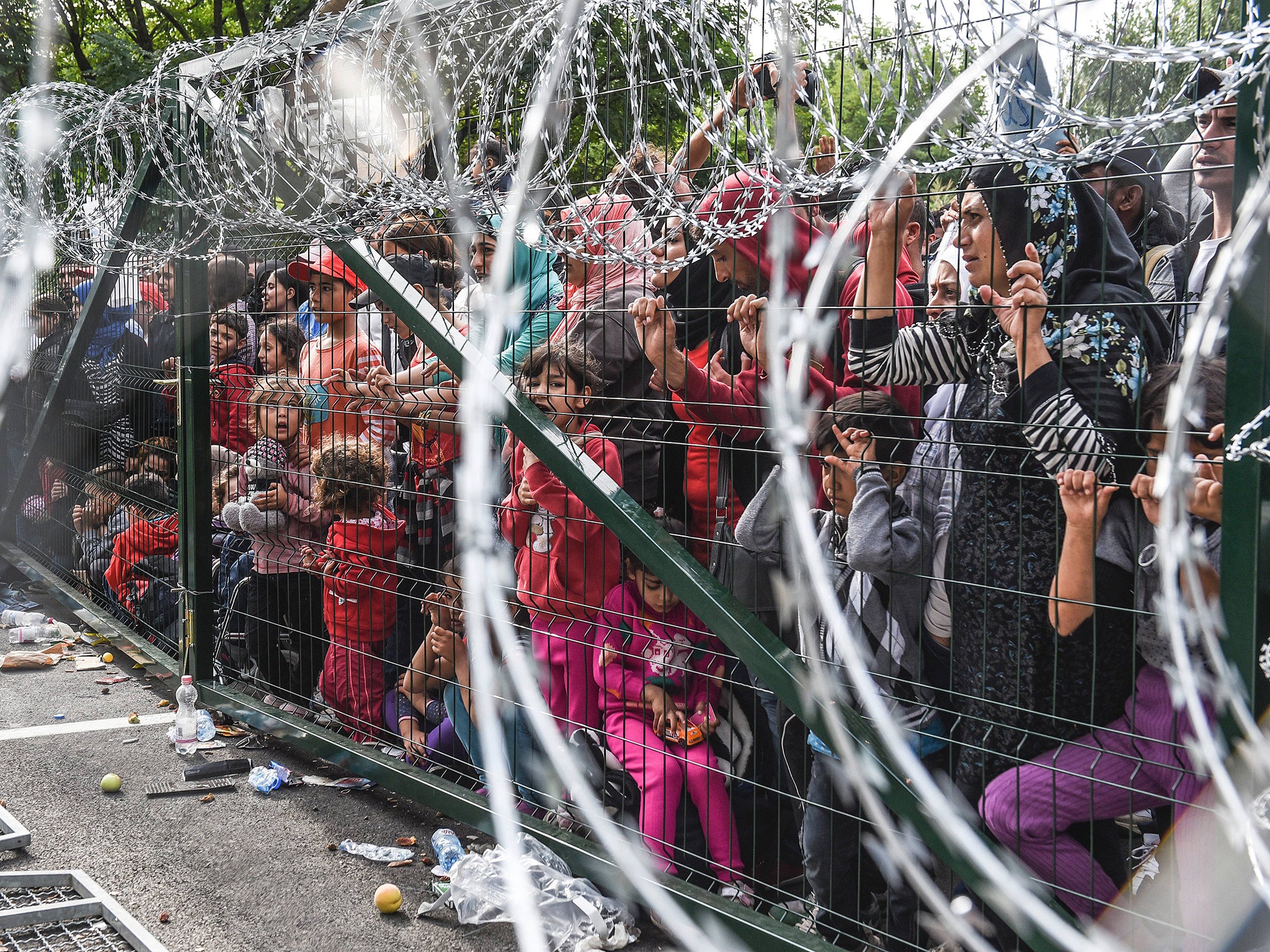Refugee crisis: The forgotten victims of sexual assault in Europe
An Amnesty International report concludes female refugees face assaults, harassment and exploitation

Your support helps us to tell the story
From reproductive rights to climate change to Big Tech, The Independent is on the ground when the story is developing. Whether it's investigating the financials of Elon Musk's pro-Trump PAC or producing our latest documentary, 'The A Word', which shines a light on the American women fighting for reproductive rights, we know how important it is to parse out the facts from the messaging.
At such a critical moment in US history, we need reporters on the ground. Your donation allows us to keep sending journalists to speak to both sides of the story.
The Independent is trusted by Americans across the entire political spectrum. And unlike many other quality news outlets, we choose not to lock Americans out of our reporting and analysis with paywalls. We believe quality journalism should be available to everyone, paid for by those who can afford it.
Your support makes all the difference.Amid a heated debate in Europe about sexual assaults allegedly committed by asylum seekers, Amnesty International has released a report concluding that female refugees face assaults, harassment and exploitation on their way from Turkey to their destinations in European countries as well as in reception centers.
The report is based on 40 interviews with female refugees in Norway and Germany. Although the authenticity of the conversations could not be independently verified, they echo allegations previously made by other organizations, including the U.N. refugee agency (UNHCR). Last October, the agency cited "credible testimonies" that female refugees were "at heightened risk" in Europe.
UNHCR urged European governments to do more to protect female and child refugees in October. But Amnesty International's new report raises serious doubts about the current safety of particularly vulnerable groups of asylum seekers.
"Many reported that in almost all of the countries they passed through they experienced physical abuse and financial exploitation, being groped or pressured to have sex by smugglers, security staff or other refugees," Amnesty International said.
One 22-year-old woman from Iraq said that a security guard in Germany had demanded "spending time alone" with her in exchange for clothes, according to the human rights organization.
Others complained about a lack of privacy in overcrowded reception centers in Germany and said they felt unsafe going to the toilet alone because men were watching them. Germany took in about 1.1 million refugees last year alone and had to accommodate many asylum seekers in tent cities or sports halls.
On New Year's Eve, Germans and refugees allegedly sexually assaulted, harassed and robbed an unknown number of women at the central train station in Cologne, a city in the west of Germany, according to local police reports. On Thursday, a city-run swimming pool banned all male asylum seekers older than 18, also following alleged incidents of sexual assaults.
The Amnesty International report, however, sheds light on victims who have largely been forgotten in the debate about sexual assaults by asylum seekers. "After living through the horrors of the war in Iraq and Syria these women have risked everything to find safety for themselves and their children. But from the moment they begin this journey they are again exposed to violence and exploitation, with little support or protection," Tirana Hassan, Amnesty International’s Crisis Response director, was quoted as saying.
Although a press release by the organization includes several references to flaws in Germany, it stressed that the situation was particularly worrisome in transit zones, including "Hungary, Croatia and Greece, where (female refugees) were forced to sleep alongside hundreds of refugee men. ... A dozen of the women interviewed said that they had been touched, stroked or leered at in European transit camps."
One refugee said she never felt safe in any of the camps. "In the camps we are so prone to being touched, and women can’t really complain and they don’t want to cause issues to disrupt their trip," she was quoted as saying.
In the interviews, many women complained about unisex bathrooms and violence by police officers. Shared bathrooms were also a concern among many female asylum seekers recently interviewed by Germany's Sueddeutsche Zeitung. Talking to Amnesty International, a pregnant 19-year-old named Rania said her time in Hungary was a shocking experience: "It was full of cages and there wasn’t any air coming in. We were locked up. We stayed there for two days. We received two meals a day," she said. "The toilets were worse than in the other camps, I feel like they mean to keep the toilets like that to make us suffer."
A 16-year-old Syrian named Maryam described how she was physically assaulted by police officers. "They hit me on my arm with a stick. They even hit younger kids. They hit everyone even on the head. I got dizzy and I fell, people were stepping on me. I was crying and was separated from my mother."
Amnesty International alleged that European governments and aid agencies were not doing enough to protect women from harassment and assaults. "At a minimum, this would include setting up single sex, well-lit toilet facilities and separate safe sleeping areas," Hassan was quoted as saying.
"These women and their children have fled some of the world’s most dangerous areas and it is shameful that they are still at risk on European soil."
© Washington Post